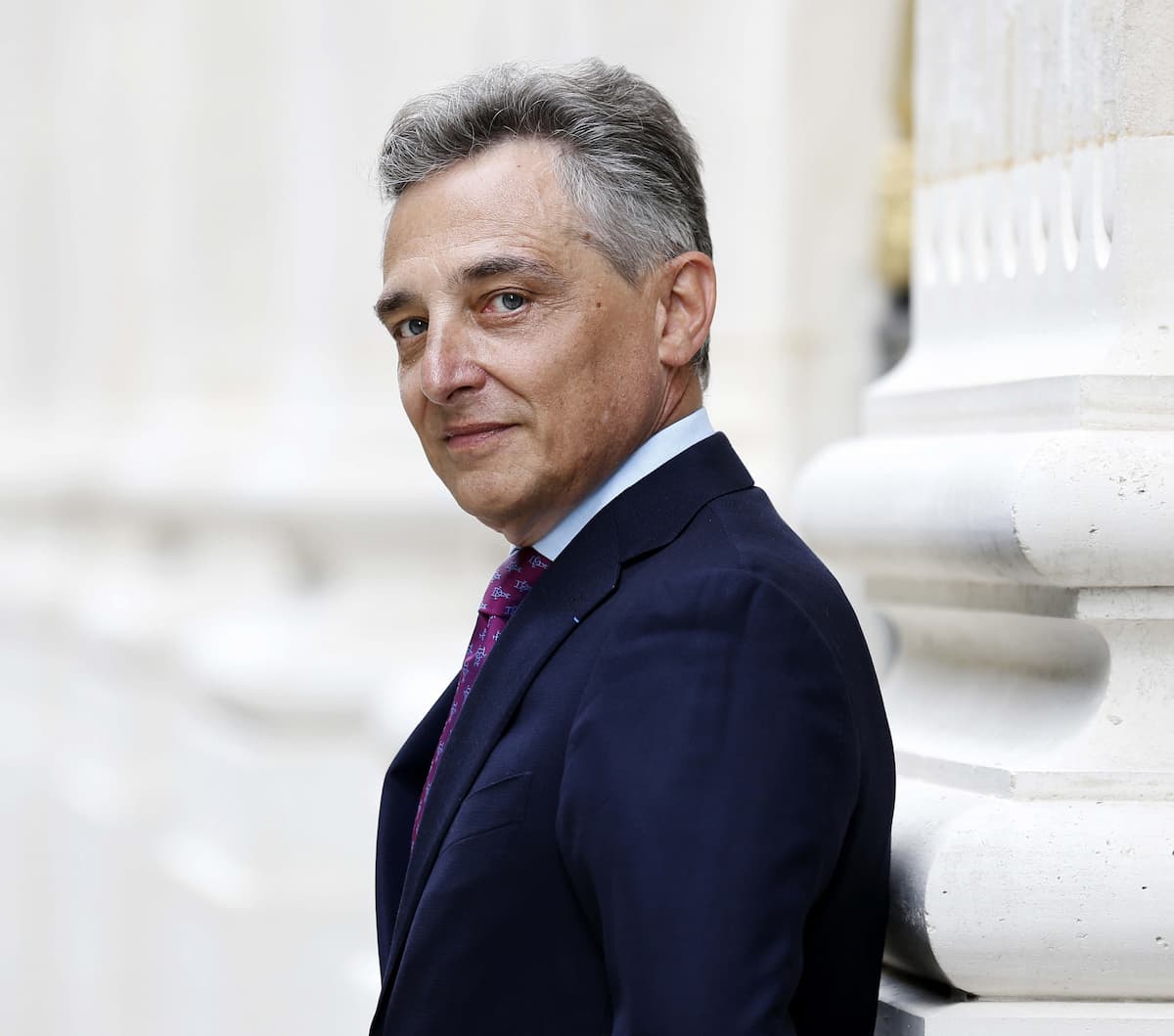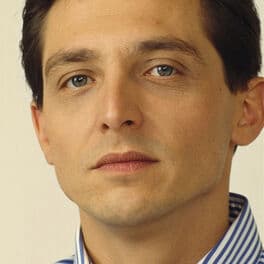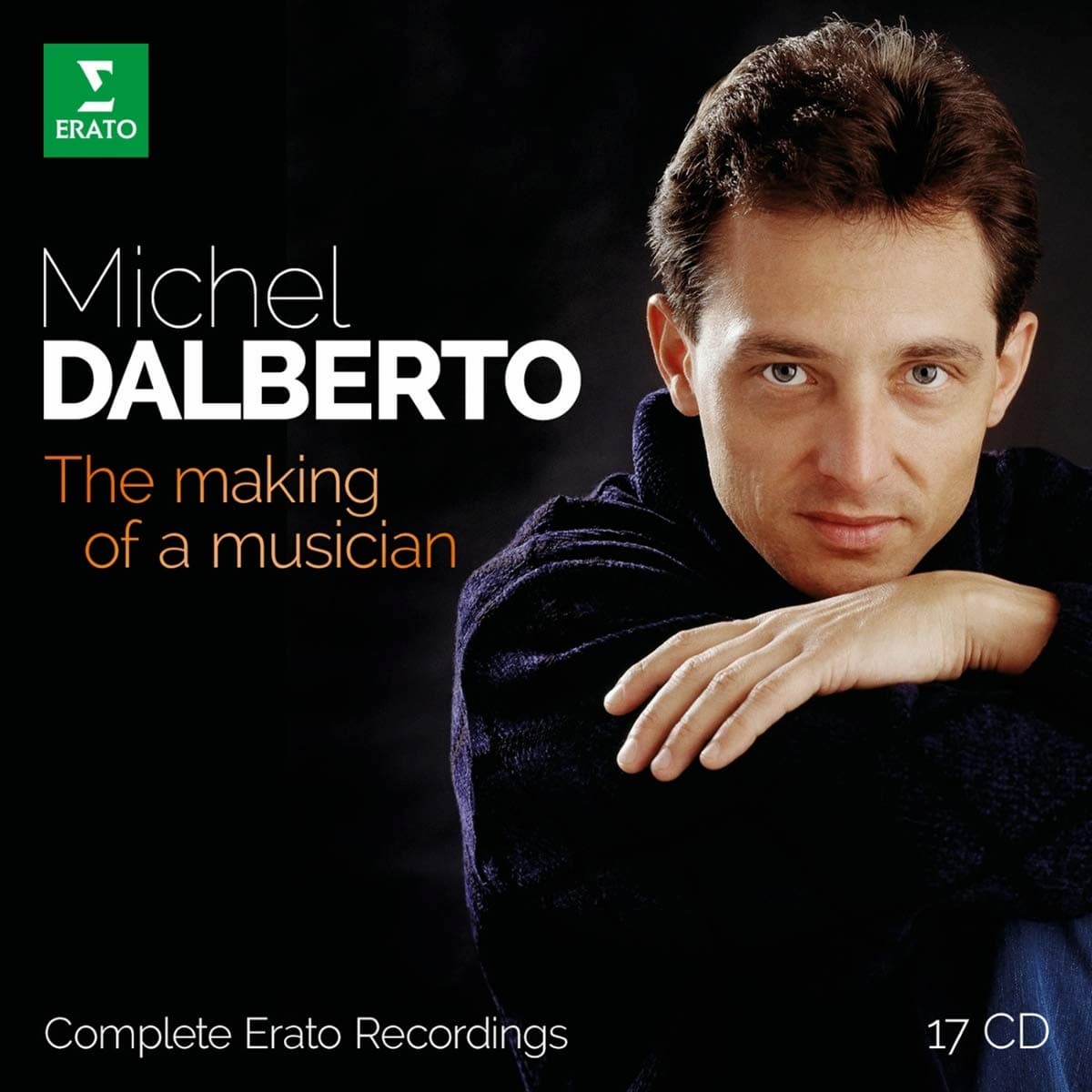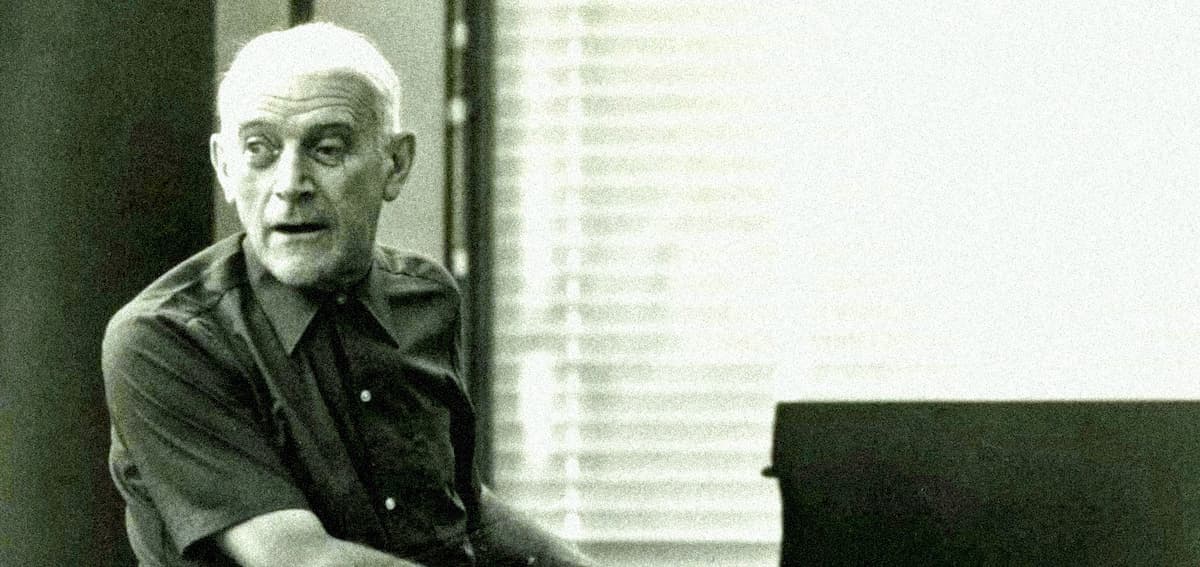French pianist Michel Dalberto stormed onto the international stage by winning the 1st Mozart Competition in Salzburg and the Clara Haskil Prize in Vevey, Switzerland. A leading interpreter of the music of Schubert, Liszt, Schumann, and all the great French composers, Dalberto is frequently called “a visionary performer and prodigious narrator showcasing a formidable and spectacular virtuosity.”
Michel Dalberto Performs Franck’s “Prelude”
Baby Steps

Michel Dalberto
Dalberto was born on 2 June 1955 in Paris, with family roots in the Dauphiné and Italian Piedmont. His father worked at the Ministry of Finance, and his mother worked for the State Welfare program. According to Dalberto, music held no particular importance in the household but was appreciated. Curiously, on Christmas Eve 1959, a toy piano appeared under the family Christmas tree.
As Dalberto remembered, “there must have been two octaves, and instead of hitting it with a hammer and breaking it after a week, I started to play melodies and reproduce what I heard.” A close family friend and amateur pianist noticed the young boy’s musical aptitude. He immediately suggested to his parents that it might be worth getting Michel some professional instruction, and the boy received his first piano lessons at the age of 4.
Franz Liszt: Années de pèlerinage, 1st year, Switzerland, S160/R10: No. 6. Vallée d’Obermann (Valley of Obermann) (Michel Dalberto, piano)
A Perfectly Normal Childhood

The young Michel Dalberto
According to Dalberto, he had “a perfectly normal childhood” and while his parents were supportive of his piano studies, it did not rank above any other subject in school. He played his first recital at the age of five, but he bristles at the notion of being called a child prodigy. “Such a thing does not exist,” he explained in an interview.
“I appeared on stage at five, and I must have played a Sonatina by Beethoven, some Mozart, and a Chopin Waltz, but there is nothing prodigious about it. One must understand that playing the piano isn’t really complicated. It’s an extremely practical instrument which enables you to do everything. With a piano, you just press the key, and the note is made. What’s complicated is exploring the repertoire and understanding the music.”
Michel Dalberto Performs Schubert’s Impromptu, Op. 90 No. 3
Clean Ears

Dalberto’s talents were being recognised, and some teachers were eager to tell his parents that he needed to stop everything else and play the piano for eight hours a day. His parents would have none of it, but things got much more interesting when Dalberto completed a final piano exam at a district conservatory in Auteuil. Dalberto remembers, “During the exam, an old lady, Mlle Brousse, was in the jury.”
After hearing him play, she approached his parents and asked them if she could introduce him to a famous pianist teaching at the Paris Conservatory. “That’s how I met Vlado Perlemuter,” Dalberto remembers. “I played for him for nearly two hours. Before leaving, he told me that if I passed the admission exam at the Paris Conservatory, he would mentor me as one of his students. He also said something very amusing, which my mother misunderstood. “Your son has something nobody will ever be able to teach him. He has a clean ear.” And his mother replied, “Of course his ears are clean!”
Maurice Ravel: Gaspard de la nuit (Michel Dalberto, piano)
Vlado Perlemuter

Vlado Perlemuter
Vlado Perlemuter was a Lithuanian-born French pianist and teacher who studied with Moritz Moszkowski and later with Alfred Cortot. He was personally acquainted with Gabriel Fauré, and he studied all of Ravel’s solo works for piano with the composer himself over a period of six months. Dalberto was only 13 years of age when he started his studies with Perlemuter. “I had no idea what all that meant,” Dalberto remembers, “but when I was asked who I was studying with and answered, it really had an effect.”
Dalberto also greatly admired Herbert von Karajan. “For me,” he writes, “he remains one of the greatest artists of the 20th century. I was so lucky to hear him numerous times and to meet him in person.” Dalberto freely admits, “I never quite understood Haydn, as I have a problem with humour in music. So I tend to avoid him as I’m not sure to be able to find the path which would lead me to understand.” Dalberto feels the same about most Russian piano music as well, but “what I really fully understand is 19th century German and French music. Being born in the same culture and country is of invaluable help. I’ve been breathing since birth the same air, and seeing the same light.”
For more of the best in classical music, sign up for our E-Newsletter
